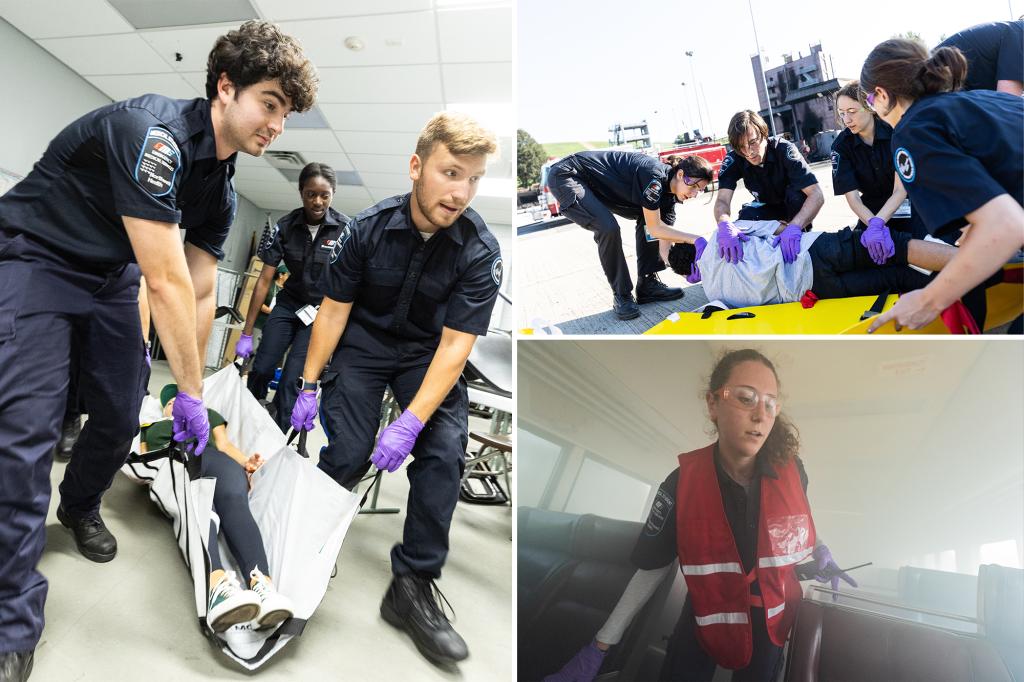Long Island medical students have been preparing for mass shootings, terrorist bombings and deadly LIRR derailments as part of one of the most intensive emergency-response programs in the country.
Students from Northwell’s Donald and Barbara Zucker School of Medicine at Hofstra last week capped an eight-week EMT program by diving into staged mass-casualty disasters — complete with simulated explosions, gunfire and smoke-filled panic staged with actors and meant to mirror the grim realities America’s first responders now face.
For the students who participated, the chaos of the day was staged — but the lessons they learned were very real.
“I thought I could handle a bunch of people getting off a derailed train for treatment,” said John Brady, a first-year medical student who participated in Mass Casualty Incident Day.
“But then when I was actually doing it — looking for patients, triaging them and getting them out of the train — I realized there was so much going on and so many different moving parts,” he said.
Students such as Brady said that participating in the event and treating the screaming crisis actors, who put on Oscar-worthy performances to make the simulations feel authentic, really “put things into perspective.”
Kayleen Argueta, another first-year student, said the intensity of the simulations hit her in ways she didn’t expect — and she found herself consoling the patient actors as much as treating them.
“In medicine, clinical skills and people skills go hand in hand,” Argueta said.
The scenarios — from terrorist bombings and mass shootings to hazmat spills — are designed to teach the budding doctors how to succeed in high-stress, life-threatening scenarios with large numbers of victims who need treatment.
Paul Wilders, chief instructor at the Nassau County Fire Service Academy who helped run the event, told shaken students afterward that what they went through and learned would stay with them long after the smoke cleared.
“After experiencing what you did — helping the victims of the mass casualty incidents, you understand better the psychological trauma people experience — how scared they are and how uncooperative that can make them,” Wilders said.
“After today, you are all going to have the ability to handle a crisis differently, more effectively.”
Read the full article here

